Latest news
09 November 2018
Hadi Hajibeygi Innovative Teaching Talent 2018
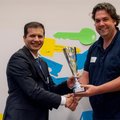
Hadi Hajibeygi, assistant professor in the faculty of Civil Engineering and Geosciences has been elected Innovative Teaching Talent 2018. He lectures on the courses, Reservoir Simulation, Rock Fluid Physics and Advanced Reservoir Simulation, and set up the DARSIM research group.
06 November 2018
'Lack of ambition in much-needed modernisation of Dutch railways'

According to Rob Goverde, professor of Railway Traffic Operations & Management, Dutch railways should switch much faster to the modern European ERTMS communication standard for rail traffic control and safety. This is a key message in his inaugural address to be held at TU Delft on Friday, 9 November.
05 November 2018
Sound as an influencing factor on safe cycling
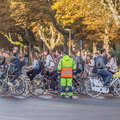
Agnieszka Stelling explores how sound impacts cyclist traffic safety. She will obtain her doctorate from TU Delft on Monday, 5 November 2018 with research into this subject.
04 November 2018
Inaugural speech prof. Bas van de Wiel - The Nighttime Weather: a piece of cake?

Our daily weather has always intrigued many of us. From day to day we experience how the continuously changing weather patterns affect our ongoing activities and plans. On a sunny moment we may decide to go for a nice walk in the park, while a few hours later after a heavy thunderstorm we have to repair our roof.
31 October 2018
Geothermal research at TU Delft gets a boost
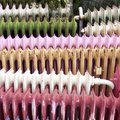
While most people did not think about heating their houses during the last hot summer months, researchers at TU Delft did exactly that (and not just the last months). Scientists involved in geothermal research have good reasons to look forward: the Board of the University has made a decision-in-principle for a next step towards realising a geothermal research well.
27 September 2018
Start of UMO: in-depth research into urban mobility
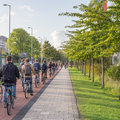
26 September 2018
Sand Motor as continuous field laboratory for teaching and research
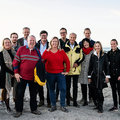
The Sand Motor, a large-scale peninsula comprising 21 million cubic metres of sand created on the coast at Kijkduin-Ter Heijde, has become a leading example worldwide of sustainable coastal protection. How is nature developing here, how are the dunes being replenished, and what is happening to the coastline? To answer these questions we need high-quality measuring equipment to continually monitor the coastline here. Thanks to financial support from Stichting Zabawas, the Sand Motor has now become a field laboratory for teaching and research in hydraulic engineering.